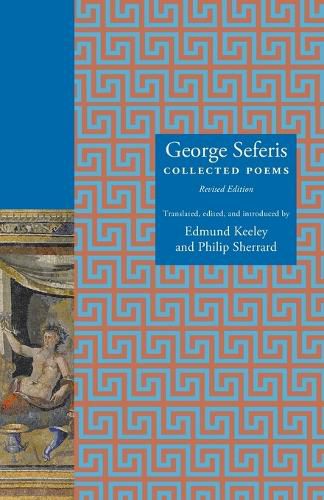Readings Newsletter
Become a Readings Member to make your shopping experience even easier.
Sign in or sign up for free!
You’re not far away from qualifying for FREE standard shipping within Australia
You’ve qualified for FREE standard shipping within Australia
The cart is loading…






In this new edition of George Seferis's poems, the acclaimed translations by Edmund Keeley and Philip Sherrard are revised and presented in a compact, English-only volume. The revision covers all the poems published in Princeton's earlier bilingual edition, George Seferis: Collected Poems (expanded edition, 1981). Winner of the Nobel Prize for Literature in 1963, George Seferis (1900-1971) has long been recognised as a major international figure, and Keeley and Sherrard are his ideal translators. They create, in the words of Archibald MacLeish, a 'translation worthy of Seferis, which is to praise it as highly as it could be praised'.
Although Seferis was preoccupied with his tradition as few other poets of the same generation were with theirs, and although he was actively engaged in the immediate political aspirations of his nation, his value for readers lies in what he made of this preoccupation and this engagement in fashioning a broad poetic vision. He is also known for his stylistic purity, which allows no embellishment beyond that necessary for precise yet rich poetic statement.
$9.00 standard shipping within Australia
FREE standard shipping within Australia for orders over $100.00
Express & International shipping calculated at checkout
In this new edition of George Seferis's poems, the acclaimed translations by Edmund Keeley and Philip Sherrard are revised and presented in a compact, English-only volume. The revision covers all the poems published in Princeton's earlier bilingual edition, George Seferis: Collected Poems (expanded edition, 1981). Winner of the Nobel Prize for Literature in 1963, George Seferis (1900-1971) has long been recognised as a major international figure, and Keeley and Sherrard are his ideal translators. They create, in the words of Archibald MacLeish, a 'translation worthy of Seferis, which is to praise it as highly as it could be praised'.
Although Seferis was preoccupied with his tradition as few other poets of the same generation were with theirs, and although he was actively engaged in the immediate political aspirations of his nation, his value for readers lies in what he made of this preoccupation and this engagement in fashioning a broad poetic vision. He is also known for his stylistic purity, which allows no embellishment beyond that necessary for precise yet rich poetic statement.